By
Byobe Malenga
Known by the name of Jules Shungu Wembadio Pene Kikumba, but more famously as Papa Wemba, the Congolese singer, songwriter and actor was born on June 14, 1949 in Lubefu, a Kasai-Oriental region of the Democratic Republic of Congo. On April 24, 2016 the world was saddened by the news of his passing.
Papa Wemba was the founder and leader of the Viva La Musica band, which recruits and train the stars of Congolese and African music such as Koffi Olomide, King Kester Emeneya.
With a near fifty-year career, he is considered one of the legends of Congolese and African music. If not the creator of Congolese rumba, he is a pillar and one of the artists that will propel this kind internationally, and will be mentioned still in the early days of Soukous.
Rumba remains despite its reference to other styles like rock wooded, Ndombolo, world music and others. In 1969, he co-founded Zaiko Langa Langa with Jossart Do yoka Longo, Evoloko, Pepe Felly and Andy Bimi Ombale.
He left the group in 1974 to found Isifi Lokolé and finally found Viva La Musica in 1977. In the late 1970s, he created the movement of SAPE.
He is the second Congolese artist (the first being Tabu Ley Rochereau) to sign with an international record label, Real World of Peter Gabriel with whom he released three albums The Traveller (1992), Emotion (1995) and Molokai (1998). In 1980, he released his first Pan-African success Analengo. In 1986 he moved to France and started in the cinema with La Vie est Belle. In 1989, he became known in the US through “Africa Oye“. In 1999, two of his titles, Maria Valencia and The Traveller, were chosen by the Italian director Bernardo Bertolucci for his film Paradiso e inferno.
Papa Wemba beats the record of longevity for musical success. The child was named “Father” because he is the eldest son of his mother. While Dad is still a baby, the family moved to Leopoldville, the capital, while still a Belgian colony.
His father, a former soldier who fought in the Belgian Army during World War II, became a hunter. His mother was a professional mourner, an essential element of all traditional parties or funeral wakes. By training regularly with her son, she introduced him to music and singing, which interested the child early on. However, his father was totally opposed to his son becoming a musician and her dream of a career as a journalist or lawyer. In 1966, the father disappeared.
From childhood, he cultivated a particular tenor voice and became a singer, following the footsteps of his mother. In the mid 1960s, he studied at the Pigier School in Kinshasa and made the religious choir outside school. Following the death of his parents, he turned to the popular music of Kinshasa in the neighborhood of Matonge, the cradle of Congolese music, and took the pseudonym “Jules Presley.”
In December 1969 in Kinshasa, with Jossart Do yoka Longo, Felix Manuaku Waku (Pepe Felly) Evoloko, Mavuela Simeon and other young musicians, he participated in the birth of Zaiko Langa Langa, one of the most popular groups in Zaire (now DR Congo) and Africa from 1970 to 1990. In the early 1970s, Zaiko Langa Langa was a very innovative young group, trying new tricks in the Congolese rumba drums and rhythms more at the expense of wind instruments, which were neglected. The Zaiko Langa-Langa reached the pinnacle of their fame in 1974 with hits like Mete Truth, Chouchouna (Papa Wemba) Eluzam, Mbeya Mbeya (Evoloko) Yo Nalinga, BP Ya Munu (Efonge Gina) (Mavuela).
In December 1974, Papa Wemba left Zaiko Langa Langa and created Isifi Lokole with Evoloko, Mavuela and Bozi Boziana. It was the time of the Zairian Authenticity and Isifi Lokole expanded at the rate of Zaïko the Lokolé, an African percussion instrument. The Papa Wemba song Amazon dominates the charts on the banks of the Congo in 1975. Then, in November 1975, he left Evoloko and Isifi Lokole to create Yoka Lokole with Mavuela Somo and Bozi Boziana.
The attack-singing Yoka Lokole, called at the time “The Fania All-Stars,” became even more daunting when the boiling Mashakado Mbuta joined in March 1976, after slamming the door on Zaiko Langa Langa. Finally, in February 1977, he created his own band Viva La Musica, a label that will accompany him throughout the rest of his career. He formed his new group around young talent like singers Kisangani Hoping, Pepe Bipoli, Jadot Cambodian and Petit Aziza, Emeneya, guitarists Rigo Star, Bongo Wende, Syriana and Pinos, the drummer Otis. For a first attempt it was a master stroke; achieving success with hits like Mother Superior, Ebale Mbonge Mabele Mokonzi, Bokulaka, and Ekoti are nzube. The first two years of Viva la Musica are those of collaboration with Koffi Olomide, then a student. He wrote the lyrics of some songs of his elder and learns the sonsg and scene with him.
They also record the first songs under the Viva label: “Ya Princess Sinza,” “Asso“, “Samba Samba“, and “Anibo“. Viva Musica has seen both the defections of musicians every two or three years and the principal and emergence of other new talents: Fafa Molokai, Debs Debaba, King Kester Emeneya (1977-1982), Koffi Olomide, as a singer, (1978-1979), Djuna Djanana (1978-1981), Dindo Yogo (1979-1981), Maray Maray- ( 1980 -84), Lidjo Kwempa (1982-2001), Amissi Reddy (1982-2001), Stino Mubi (1983-2001)
As Fela founded Kalakuta Republic, Papa Wemba in 1977 created in the family court Matonge, Kinshasa, The Village of Molokai: M-O-LO-KA-I: Masimanimba-Oshwe-Lokolama-Kanda-kanda-Inzia. A sort of copy of an African village, with its rules and codes, which he enthroned himself symbolically, Customary Chief. But his approach was not politically comparable to Fela in Nigeria because he never campaigned against the authoritarian regime of Mobutu.
From 1979 to 1980, Papa Wemba joined Afrisa International, Tabu Ley, his lifelong idol’s group. This was a temporary mutual cooperation between the two artists. He took part in a European tour forAfrisa and recorded two songs with his mentor: “Ngambo moke” and “Lips roses“.
In the early eighties, his poularity was high in Zaire and Congo- Brazzaville. He became an icon for the youth on both banks of the Congo River. He is the main leader of the movement of SAPE. Musically, he then recorded some of his greatest hits: “Signorina,” “Analengo“, “Mea Culpa“, “Melina Paris“, “Santa“, and “Matebu“. This is also the period of defections from the orchestra as Rigo Star, Kisangani Hoping, Dindo Yogo, Djanana Djuna (father Master Gims) Emeneya, Bipoli, Debaba leave Viva la Musica all leave. Following these departures, he enlists new faces, Maray Maray, Reddy Amisi, Lidjo Kwempa, Awilo Longomba, etc.
In the late 1980s, Papa Wemba moved to Europe, successively releasing the albums “The Slave“, “Mfono Yami“, “The Traveller“, “Foridoles“, “Malimba” and successfully surveyed the ranks of World music. Musical collaborations and a good team player during his long career, Papa Wemba has not hesitated to work with artists such as Tabu Ley Rochereau and Afrisa group, Martin Meissonier (producer King Sunny Adé and Ray Lema), Peter Gabriel, Ray Lema, Manu Dibango, Koffi Olomide, Youssou N’Dour, Pepe Kalle, old Wendo Kolosoy, Lutumba Simaro, Kwamy Mussy and his cronies Zaiko (Evoloko Joker, Bozi Boziana, Efonge Gina, Mavuela Somo), quartets of Clan Langa Langa alpha Blondy. Aretha Franklin contributes to the album Emotion Fa Fa, Lokua Kanza, Angelique Kidjo, Salif Keita, JB MPIANA, Singuila, Ophélie Winter, Manu Dibango and Youssou N’dour.
As an actor in 1987, he was the lead of the Belgo-Zairian film La Vie est Belle. He also composed much of the original music for this film. Papa Wemba also appears in the 1997 film Wild Games. In 2012, he had a small role in the Belgian drama Kinshasa Kids.
Pap Wemba died on Sunday, April 24, 2016 in Abidjan, Cote d’Ivoire where he participated in the Urban Music Festival Anoumabo. He will be fondly remembered by many around the world. For them and generations to come, his music will live on.

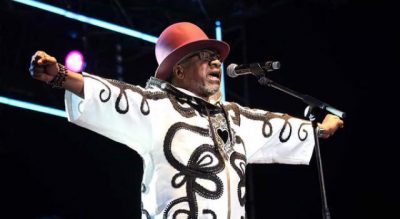
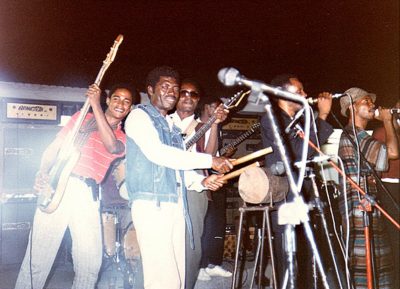
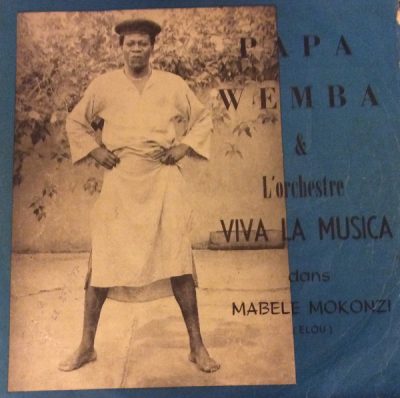
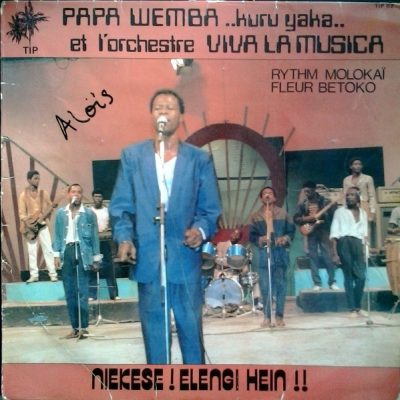
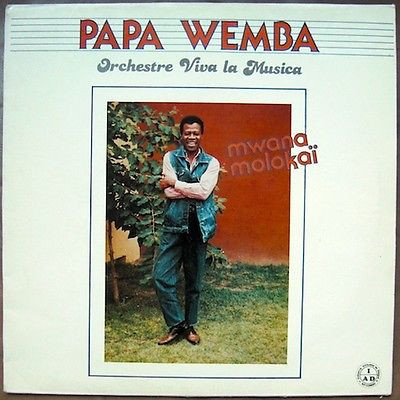
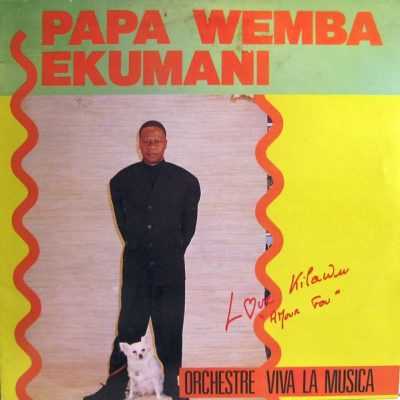
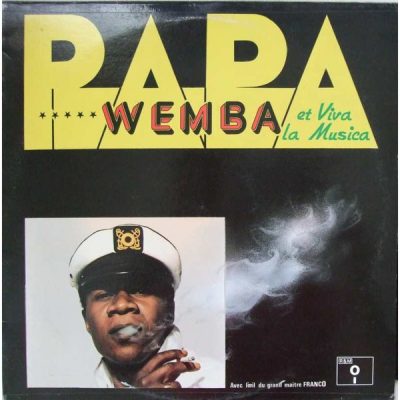
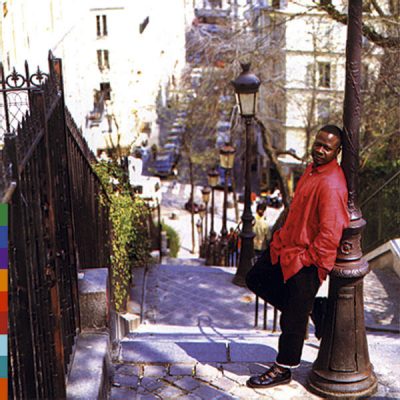
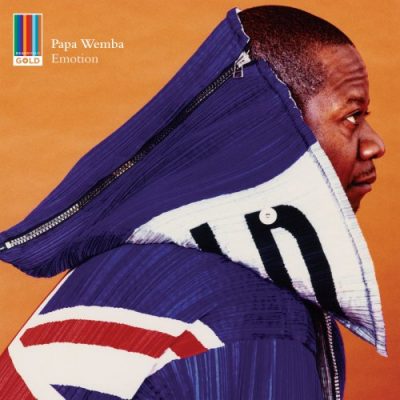
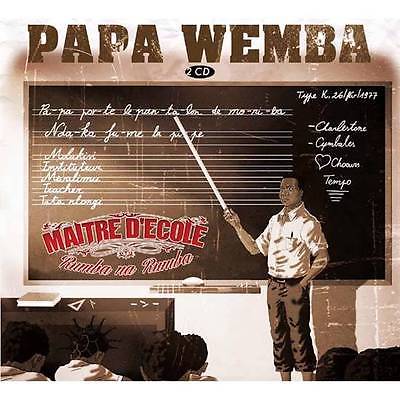
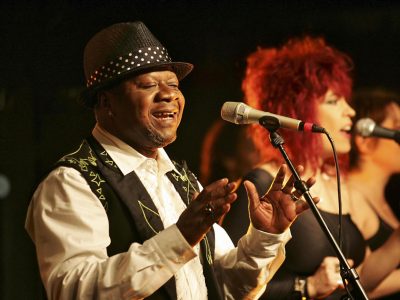

No Comments Yet!
You can be first to comment this post!